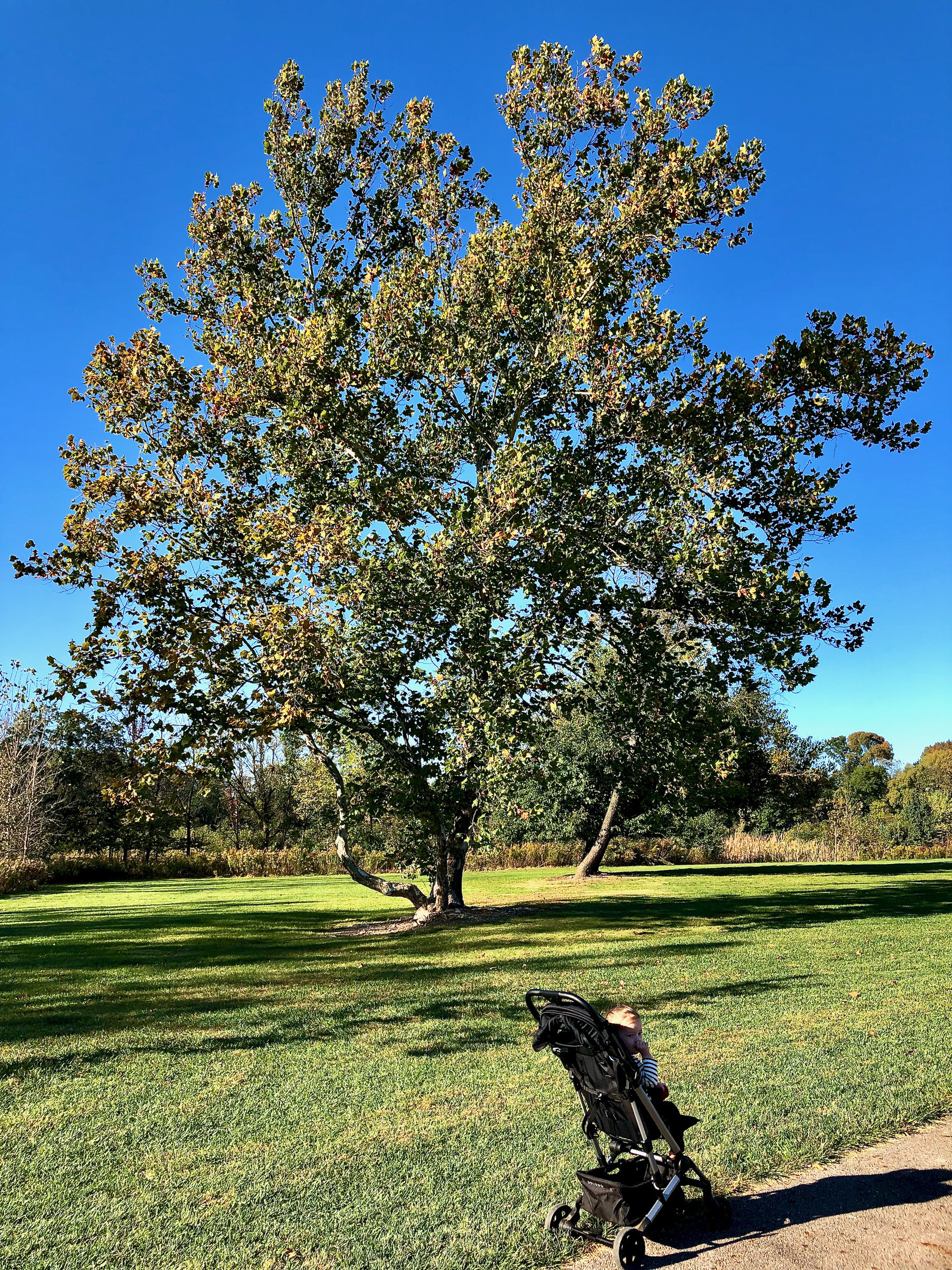19 October 2021
Fidál, 5 ‘Ilm (Knowledge), 178 B.E.
Seen
Poison ivy, Honeysuckle, and Symphyotrichum in fall colors (don’t touch!), berries (don’t eat!), and blooms (don’t pick!):

Done
Walk with the granddaughter

American Sycamore (Platanus occidentalis)
Noted
Astral Prospecting on Instagram: Bohdi’s bad start to the day
Quoted
Tools for Social Progress
Up until now, I have focused on the more personal aspects of the Bahá’í teachings. This is the aspect of religion that most people are familiar with and most comfortable with. But Bahá’u’lláh explains that our purpose in life is three-fold. We are to love God, acquire virtues, and carry forward an ever-advancing civilization.
To many people, advancing civilization is the job of science and politics, not religion. But for Bahá’ís, progress and growth are central to God’s great plan for humanity. While each Prophet taught the same essential virtues, they also taught us how to apply those virtues in progressively broader and more complex areas of life. Bahá’ís talk about these two aspects of religion as the spiritual and the social teachings. 2
Each of the divine religions embodies two kinds of ordinances. The first is those which concern spiritual susceptibilities, the development of moral principles and the quickening of the conscience of man. These are essential or fundamental, one and the same in all religions, changeless and eternal—reality not subject to transformation. Abraham heralded this reality, Moses promulgated it, and Jesus Christ established it in the world of mankind. All the divine Prophets and Messengers were the instruments and channels of this same eternal, essential truth.
The second kind of ordinances in the divine religions is those which relate to the material affairs of humankind. These are the material or accidental laws which are subject to change in each day of manifestation, according to exigencies of the time, conditions and differing capacities of humanity. 3
My sister and brother-in-law recently relocated and chose to donate several books in their library rather than move them. Many of these volumes are not well-known, but due to the topics they cover and the manner in which their authors explore them, they warrant a nod of recognition before being sent on their way. Accordingly, most quotes referenced in the “Quoted” section come from these books. Maybe they will stir (or renew) your interest, too.
- Staff. “Dog Eyes Swollen Shut Causes and Treatment.” Dogs, Cats, Pets, 27 Feb. 2017, dogscatspets.org/dogs/eyes… [return]
- St. Rain, Justice. My Bahá’í Faith: A Personal Tour of the Bahá’í Teachings. 1st ed., Special Ideas, 2004, 49. [return]
- ʻAbduʼl-Bahá. The Promulgation of Universal Peace: Talks Delivered by ʻAbduʼl-Bahá during His Visit to the United States and Canada in 1912. Edited by Howard MacNutt. 2nd ed. Wilmette, Ill: Baháʼí Publishing Trust, 1982, 106.https://www.bahai.org/library/authoritative-texts/abdul-baha/promulgation-universal-peace/7#988666701. [return]
